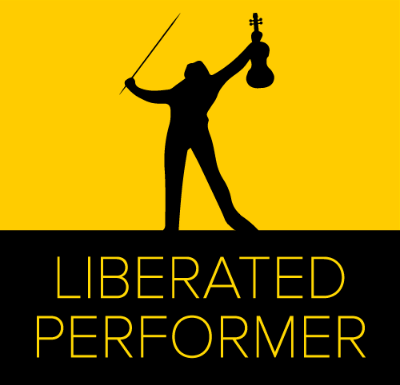Here are the fundamental strategies and perspectives we use to help performers feel confident about their memory in pressure situations. Not all of them are common strategies so make sure to scan the bolded terms to see if any are new.
Memorize by Chunking
This is a popular and common way so I won’t spend too much time on it but it must be mentioned. Essentially you memorize smaller chunks and then put them together to form a larger chunk. For example, you memorize the first phrase, second phrase, and then put them together. If you need, break them down into half phrases, or you can even memorize note by note depending on what you need.
Memorize your performance Conceptually
Examples of memorizing your performance conceptually is to memorize the basic theory like form, phrases, and knowing how to describe what you are trying to communicate artistically. Conceptual memorizing is great because it gives you a larger view than if you were memorizing note by note.
Memorize your performance Physically
Technical memorization is all about kinesthetic memory. What does it feel like to perform your piece technically? How is your posture, breath, movement, shifting, hand position, etc feel?
Artistic Intention is all about feeling the character of the music. How does it feel physically? Artistic intention is not conceptual where you describe what you are doing artistically. It is all about feeling. We all know the best performances are when the performer is, for the majority, absorbed in their character and intention. You’re essentially memorizing your ultimate performance mode.
Test your memory
Typically you want to aim for a 99% success rate. That might sound insane but when the pressure is there, we must rely on our preparation. Essentially, that success percentage is a way to just aim for excellence.
When testing, you can also start from different sections. If you make a mistake during a performance, you have the conditioning to start and get back into the performance if you train this way. Depending on the amount of repertoire and time, you can choose to start from different sections, phrases, half phrases, and from each note. Starting from each note is a good strategy for excerpts since they are short. For concertos, it might get obsessive starting from every single note but you have the option.
Create Pressure when testing. It’s good to test in the comfort of the practice room. However, passing those tests aren’t guaranteeing you’ll succeed in pressure. We have to look for tests that can simulate the pressure such as studio class, mock auditions, or performing in front of a respected authority figure.
Remember it correctly from the beginning
I’m guilty of the situation where I memorize a piece and then realize I have a couple wrong notes half way into cementing it into my head. Avoid bad habits and remember it correctly from the beginning by testing your memory early. If you do memorize something poorly, recondition your mind to play the right notes until you get that 99% success rate.
Make sure you can memorize it
Sometimes we are forced to memorize something like a solo Bach but sometimes we have the choice with excerpts, sonatas, or even solos in the orchestra part.
With this in mind, ask yourself if the performance or section is worth memorizing and consider how much time and how much reward you’ll get.
Trust your memory
Now that you put in the work, there has to be a time where you feel and accept that you have it in your memory! For those that don’t trust their memory, just know that the more you practice memorizing, the faster you can memorize.
Be ok with making memory mistakes.
When memory mistakes may happen, just get back on track. It’s not the end of the world. In all performances, there is the risk of mistakes, but that is also what makes it partly exciting for the audience.
Commit to long term memory
In order to achieve long term memory…
•Memorize over time
•Memorize consistently
•Memorize in different situations
•Sleep
See the long-term benefit to memorizing your performance
Performing by memory is a thousand times better than reading music, or having to think about what comes next in your performance. It is liberating and produces the best performance for the audience as well. It goes back to reinforcing the most important memory goal of having it physically in your body technically and artistically.
Anyway, I hope you gained a couple of tips to improve your efficiency and execution in memory.

